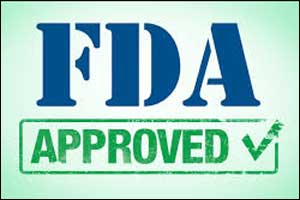- Home
- Editorial
- News
- Practice Guidelines
- Anesthesiology Guidelines
- Cancer Guidelines
- Cardiac Sciences Guidelines
- Critical Care Guidelines
- Dentistry Guidelines
- Dermatology Guidelines
- Diabetes and Endo Guidelines
- Diagnostics Guidelines
- ENT Guidelines
- Featured Practice Guidelines
- Gastroenterology Guidelines
- Geriatrics Guidelines
- Medicine Guidelines
- Nephrology Guidelines
- Neurosciences Guidelines
- Obs and Gynae Guidelines
- Ophthalmology Guidelines
- Orthopaedics Guidelines
- Paediatrics Guidelines
- Psychiatry Guidelines
- Pulmonology Guidelines
- Radiology Guidelines
- Surgery Guidelines
- Urology Guidelines
FDA Approves drug for Thrombocytopenia in children

U.S. Food and Drug Administration (FDA) has approved romiplostim for treatment of pediatric patients one year of age and older with immune thrombocytopenia (ITP). The treatment is recommended for at least six months in those who have had an insufficient response to corticosteroids, immunoglobulins or splenectomy.
Romiplostim is a thrombopoietin (TPO) receptor agonist that mimics the body's natural TPO and is designed to increase platelet counts in patients with chronic immune thrombocytopenia (ITP).
ITP is a rare, serious autoimmune disease characterized by low platelet counts in the blood and impaired platelet production. In the U.S., the estimated prevalence of ITP in children is 5.3 per 100,000 children annually. The treatment goal for children with ITP is to achieve and maintain a platelet count that reduces the risk of bleeding.
The approval was based on two placebo-controlled studies – Phase 3 and Phase 1/2 – evaluating the safety and efficacy of romiplostim in pediatric patients. In the Phase 3 study, published in The Lancet, rates of overall platelet response were increased with the Nplate group (71 per cent) compared with placebo (20 per cent), p<0.05. Additionally, durable platelet response occurred more frequently with Nplate (52 percent) compared with placebo (10 percent), p<0.05. In the two placebo-controlled trials, adverse reactions with an incidence of > 25 percent in the Nplate arm were a contusion, upper respiratory tract infection and oropharyngeal pain.
"Today's approval underscores our long-standing commitment to making a positive impact on the lives of patients with rare and difficult-to-treat haematological disorders," said David M. Reese, M.D., executive vice president of Research and Development at Amgen. "In the 10 years since the FDA approved Nplate as the first platelet booster for adult patients with chronic ITP, it has made a difference in the lives of thousands of adults, and we're proud to bring this treatment option to children who need it most."
"Children with ITP are at risk for serious bleeding events and spontaneous bruising due to low platelet counts, which can be worrying for these young patients and their parents. Currently, these patients have a limited number of treatment options, especially for those with refractory disease," said Michael D. Tarantino, M.D., president of the Bleeding and Clotting Disorders Institute and professor of Pediatrics and Medicine, University of Illinois College of Medicine-Peoria, Peoria, Ill. "Today's approval of Nplate offers new hope to the pediatric ITP community as it provides children with a new treatment option that may help to maintain safe platelet counts."
A headache was the most commonly reported adverse drug reaction of the drug.In addition to this Arthralgia, Dizziness , Insomnia ,Myalgia and Pain in Extremity are other reported side effects.

Disclaimer: This site is primarily intended for healthcare professionals. Any content/information on this website does not replace the advice of medical and/or health professionals and should not be construed as medical/diagnostic advice/endorsement or prescription. Use of this site is subject to our terms of use, privacy policy, advertisement policy. © 2020 Minerva Medical Treatment Pvt Ltd